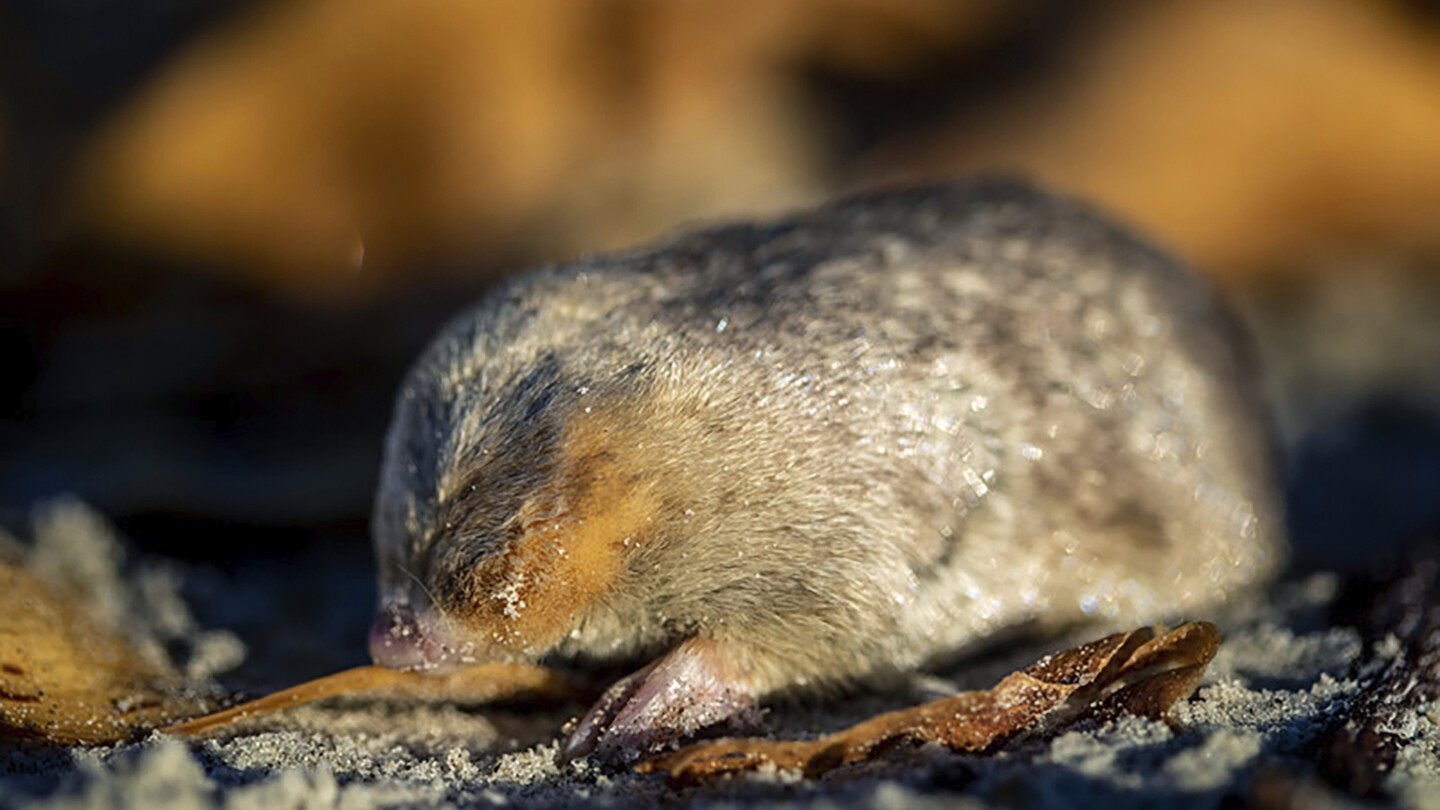CAPE TOWN, South Africa (AP) — Researchers in South Africa say they have rediscovered a species of mole with an iridescent golden coat and the ability to almost “swim” through sand dunes after it hadn’t been seen for more than 80 years and was thought to be extinct.
The De Winton’s golden mole – a small, blind burrower with “super-hearing powers” that eats insects – was found to be still alive on a beach in Port Nolloth on the west coast of South Africa by a team of researchers from the Endangered Wildlife Trust and the University of Pretoria.
It had been lost to science since 1936, the researchers said.
Golden mole: “I didn’t hear no fucking bell.”
“I got better”
Who are you who are so wise in the ways of science?
Good on ya, golden mole. That’s the sort of tenacity that saw mammals through the Chicxulub impact.
That’s the spirit of the Synapsids in all of us.
Well, tenacity and brown fat reserves located on their back that allows for impressive heat generation. Something us large mammals lack unfortunately.
Was it lost? I remember watching a nature documentary about the bastards where they seemed to be alive and well.
The documentary you watched was probably on a different species. From the article:
“With the help of a sniffer dog, the team found traces of tunnels and discovered a golden mole in 2021. But because there are 21 species of golden moles and some look very similar, the team needed more to be certain that it was a De Winton’s.”
This is the best summary I could come up with:
The De Winton’s golden mole – a small, blind burrower with “super-hearing powers” that eats insects – was found to be still alive on a beach in Port Nolloth on the west coast of South Africa by a team of researchers from the Endangered Wildlife Trust and the University of Pretoria.
Golden moles are native to sub-Saharan Africa and the De Winton’s had only ever been found in the Port Nolloth area.
Two De Winton’s golden moles have now been confirmed and photographed in Port Nolloth, Mynhardt said, while the research team has found signs of other populations in the area since 2021.
“It was a very exciting project with many challenges,” said Esther Matthew, senior field officer with the Endangered Wildlife Trust.
“Luckily we had a fantastic team full of enthusiasm and innovative ideas, which is exactly what you need when you have to survey up to 18 kilometers (11 miles) of dune habitat in a day.”
The De Winton’s golden mole was on a “most wanted lost species” list compiled by the Re:wild conservation group.
The original article contains 475 words, the summary contains 177 words. Saved 63%. I’m a bot and I’m open source!
whelp. this guy’s a cutie.
They’ve also found an Echidna that they thought was extinct again.








